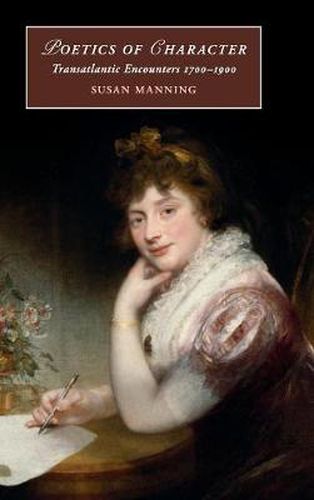Readings Newsletter
Become a Readings Member to make your shopping experience even easier.
Sign in or sign up for free!
You’re not far away from qualifying for FREE standard shipping within Australia
You’ve qualified for FREE standard shipping within Australia
The cart is loading…






This study of character in a comparative context presents a new approach to transatlantic literary history. Rereading Romanticism across national, generic and chronological boundaries, and through close textual comparisons, it offers exciting possibilities for rediscovering how literature engages and persuades readers of the reality of character. Historically grounded in the eighteenth-century philosophical, political and cultural conditions that generated nation-based literary history, it reveals alternative narratives to those of origin and succession, influence and reception. It also reintroduces rhetoric and poetics as ways of addressing questions about uniqueness and representativeness in character creation, epistemological issues of identity and impersonation, and the generation of literary value. Drawing comparisons between works from Alexander Pope and Cotton Mather through Robert Burns, Jane Austen, John Keats, Nathaniel Hawthorne, Edgar Allan Poe, R. W. Emerson, Margaret Fuller and Herman Melville, to George Eliot and Henry James, Susan Manning reveals surprising metaphorical, metonymic and performative connections.
$9.00 standard shipping within Australia
FREE standard shipping within Australia for orders over $100.00
Express & International shipping calculated at checkout
This study of character in a comparative context presents a new approach to transatlantic literary history. Rereading Romanticism across national, generic and chronological boundaries, and through close textual comparisons, it offers exciting possibilities for rediscovering how literature engages and persuades readers of the reality of character. Historically grounded in the eighteenth-century philosophical, political and cultural conditions that generated nation-based literary history, it reveals alternative narratives to those of origin and succession, influence and reception. It also reintroduces rhetoric and poetics as ways of addressing questions about uniqueness and representativeness in character creation, epistemological issues of identity and impersonation, and the generation of literary value. Drawing comparisons between works from Alexander Pope and Cotton Mather through Robert Burns, Jane Austen, John Keats, Nathaniel Hawthorne, Edgar Allan Poe, R. W. Emerson, Margaret Fuller and Herman Melville, to George Eliot and Henry James, Susan Manning reveals surprising metaphorical, metonymic and performative connections.